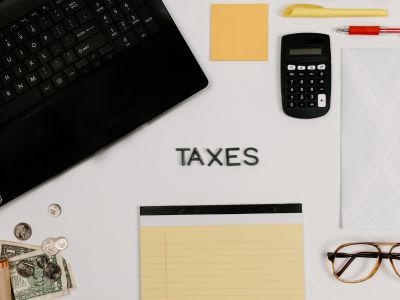Mastering Personal Tax Planning: Securing Your Financial Future
 Tax planning is a crucial aspect of managing your personal finances effectively. It involves strategic decision-making and proactive actions to optimize your tax liability while staying compliant with the law.
Tax planning is a crucial aspect of managing your personal finances effectively. It involves strategic decision-making and proactive actions to optimize your tax liability while staying compliant with the law.
In this blog post, we will explore the fundamentals of personal tax planning, its significance in achieving financial well-being, and essential strategies to consider.
Understanding Personal Tax Planning
Personal tax planning refers to the process of analyzing your financial situation, evaluating tax laws and regulations, and implementing strategies to minimize your tax burden legally. It involves anticipating and optimizing various aspects of your financial life, such as income, investments, deductions, credits, and retirement planning, to achieve tax efficiency.
Significance of Personal Tax Planning
Effective tax planning offers several benefits that contribute to your overall financial well-being:
Tax Savings: By strategically utilizing deductions, credits, exemptions, and favorable tax provisions, you can reduce the amount of tax you owe, leaving more money in your pocket.
Increased Cash Flow: Lowering your tax liability means more disposable income, enabling you to meet financial goals, invest, or save for the future.
Enhanced Financial Control: Engaging in tax planning empowers you to have a better understanding of your financial situation, identify potential tax-saving opportunities, and make informed decisions to optimize your overall financial health.
Long-Term Planning: Tax planning extends beyond the current tax year. By considering long-term goals and future tax implications, you can structure your financial affairs to maximize tax advantages and create a solid foundation for your financial future.
Essential Strategies for Personal Tax Planning
Income Management
Strategically managing your income sources, timing bonuses or self-employment income, and taking advantage of tax-favored accounts like IRAs and HSAs can help optimize your tax liability.
Deduction Optimization
Identifying and utilizing all eligible deductions, such as mortgage interest, student loan interest, medical expenses, and charitable contributions, can significantly reduce your taxable income.
Investment Planning: Understanding the tax implications of different investment vehicles, utilizing tax-efficient investment strategies, and considering tax-advantaged accounts like 401(k)s or ISAs can minimize taxes on investment gains.
Retirement Planning
Contributing to retirement accounts like 401(k)s, IRAs or pension plans not only helps secure your future but also provides potential tax advantages, such as tax-deferred growth or tax-free withdrawals in retirement.
Estate and Gift Planning
Careful estate and gift tax planning can help minimize taxes on wealth transfers, ensuring your assets are preserved and passed on efficiently to your loved ones.
Keep Your Hard-earned Money
Personal tax planning is a vital tool for achieving financial well-being. By understanding the principles of tax planning, leveraging available deductions and credits, and adopting proactive strategies, you can optimize your tax liability while securing your financial future. However, tax laws are complex and subject to change, so consulting with a qualified tax professional is recommended to tailor the strategies to your specific circumstances. Embrace the power of personal tax planning to take control of your finances and make the most of your hard-earned money.
